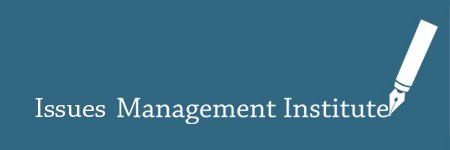Packaging Industry
Plastic is fantastic
Do you remember the frontpage photograph of a murdered duck? The plastic rings of a sixpack around its neck, tangled up in the reeds along the river shore. In an attempt to free itself, the animal has only succeeded in tightening the cutting rope even deeper. A truthful reproduction of reality, one would say. But a photograph doesn’t speak more than a thousands words, rather much less than a thousand words. How is the plastic packaging producer, tormented by years of accusations on garbage, to communicate? “Good morning, the press here, I call you about the garroted drake. Any comment?” Answer: “Plastic is fantastic. And by the way, it is not my fault.” Some answer you’ve got there. Nobody will ever believe you again.
https://www.youtube.com/watch?v=GPCwKZW_11k
The strangled duck doesn’t belong to the domain of the PE/PP packaging industry, not even if indeed the company called is the one that produces sixpack rings. The poor animal is the victim of the behavior of end users and more specifically victim of that particularly loathsome behavior called littering: thoughtless and careless throwing away anything on any place without spending another thought on descent disposal. In public opinion however, the litterers are not being held accountable as the savages endangering the environment. And besides: they already know who did it: the plastic industry. Within this frame of garbage, the industry is being kept hostage as the villain killing birds and creating plastic soups. The role of ‘hero’ can only be taken in entirely different frames, such as the discussion on energy, transport and distribution or logistics. In these frames questions on choking ducks in sixpack rings do not arise.
Since 1 January 2016 rough weather is underway for PE/PP producers, now retailers cannot provide their customers with plastic bags for free. The ocean full of plastic soup is the motive given. That the ingredients of that soup (most likely) are not plastic bags, and most certainly not plastic bags from Europe doesn’t really seem to bother anyone. The floating part of the soup however, is unmistakenly PE/PP. The packaging and the plastic industry deliver indeed fantastic results in reduction of material whilst still keeping the product safe and hygienic, as well as the (thermic) recyclability and (biological) degradability. The results in terms of ‘social acceptance and appreciation‘ however, are much more meagre.
Our service: The plastic soup is ‘the fault of the industry’ as politicians and public love to chat. Just distributing the facts in the hope that people will then see that the industry is not an environmental criminal, will not really serve the purpose. ‘Plastic is fantastic’ can only be successfully be communicated, when one is no longer seen as the villain. We develop a public relations and issues management policy, including a program aimed at (social) media, to contribute to the solution of the plastic soup on the one hand and make you operate in a different frame altogether on the other hand.
More on Plastic and Public Opinion
Decades long the packaging industry has been haunted by the association it acquired with ‘garbage’. In the garbage discussion the packaging industry time and again was pointed at as the ‘villain’, the ‘victim’ was the environment, the ‘hero’ the green movement. Litter was easily put on the conto of the industry: ‘they are the ones who produce the garbage, aren’t they?’ In these decades (plastic) packagers felt unjustly judged and treated. Plastic packaging was always judged as part as the garbage pile and never as part of the functions of packaging such as transport, preservation, protection, information and so on.
Looking at a problem through a certain frame means one only looks for facts that substantiate that frame. This happened with the garbage issue. The same process is applicable to e.g. the energy discussion. In the latter case one has to look at the sustainable aspect of plastic packaging, which is the fact that its sources, oil and gas, are being re-used, instead of being used directly and only one time such as we do when fueling our cars and planes. Viewed at from the energy perspective and taking all the facts that matter in that discussion into account, one might consider oneself environmentally friendly. However. One has told these facts to the media time and again and everything was to no avail: the image of being an environmental criminal persisted. The ‘approach’ of (plastic) packaging from the perspective of the garbage pile, or the perspective of logistics, or transportation, or distribution or energy are all possible frames. In all these frames three roles are to be played: villains, victims and saviors. Pick your choice.
Producers of polyethylene household bags are facing heavy weather as of January 1st, 2016. Just mentioning the facts doesn’t help. Telling people you are not a criminal but very concerned to protect the environment doesn’t help either. As long as the industry is regarded as the plastic soup creating villain, facts from any other frame will not materialize and not be heard. Remember the strangled duck and the industry is accused of doing that. “Good morning, the press here, I am calling about the hanged animal. What is your comment?” Your answer could be: “Shouldn’t you call the littering hooligan who did this.” Better still, we can help you reframe and you can make sure you’re not called at all.
Collapse
Clients and Issues Management Institute strive for full transparency.
It might occur that a company does not want to be listed on this website.
This, of course, is respected.









